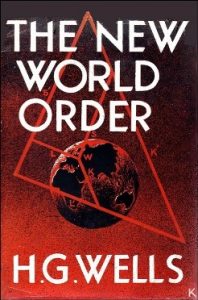The boiling frog is an analogy describing a frog being slowly boiled alive. The premise is that if a frog is thrown suddenly into boiling hot water, it will immediately jump out. However, if the frog is put in cold water which is then slowly and gradually brought to a boil, it will not perceive the danger, sit still, and will therefore be cooked to death. Applied to human cognition & behavior the analogy could be interpreted as follow: If the environment changes gradually in an incremental step-wise fashion, humans have great difficulty to recognize the change because each step in the evolution of the system (i.e., the change in the environment) is not drastic at all. However, over an elongated period of time the system changes significantly and the additive long-term effect of numerous small changes have extreme consequences. The question thus is: When does the system change from stable to chaotic, i.e., from “from lukewarm to boiling hot”. The demarcation criterion is not clear. In the cognitive sciences this is ambiguity is discussed under the header “vagueness of attributes”.1 In philosophy this is an ancient paradox known as Sôritês paradox (or the problem of the heap).2 The paradox is based on the seemingly simple question: When does a heap of sand become a heap? (When does the system “switch” from being life-supporting to deadly.) The Bald Man (phalakros) paradox is another allegory which illustrates the point:
A man with a full head of hair is not bald. The removal of a single hair will not turn him into a bold man. However, diachronically, continuous repeated removal of single hairs will necessarily result in baldness. However, it is unclear when the “critical boundary” has been transgressed. In the psychology of reasoning this is termed the “continuum fallacy”. The informal logical fallacy pertains the argument that two states (i.e., cold vs. hot) cannot be defined as distinct (and/or do not exist at all) because between them there exists a continuum of states (cf. fuzzy logic). The fundamental question whether any continua exist in the physical world is a deep question in physics (cf. atomism). Deterministic Newtonian physics stipulates that reality is continuous. Per contrast, contemporary quantum physics is based on the notion of discrete states (quanta) as the notion of continuity appears to be invalid at the smallest Planck scale of physical existence.
 Multilingual AI translation:
Multilingual AI translation: 







